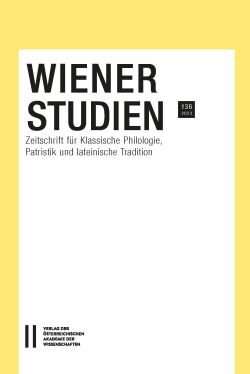
Wiener Studien 136/2023, pp. 209-222, 2023/07/11
Zeitschrift für Klassische Philologie, Patristik und lateinische Tradition
In antiquity the default state of a volumen was seen as unrolled or unfurled (sc. open), books (volumina) being rolled up for storage and unrolled for reading. But Jerome employs the verb replicare and Rufinus revolvere for the act of closing a scroll. Neither is thus in conformity with the established usage of these verbs (sc. for opening a volume). These two marked variant expressions regard the default state as rolled-up, to be unrolled for reading and subsequently rolled up for storage. Each author compares the eschatological prophecy of Isaiah (34,4), which threatens that god will roll (up) the heaven like a volumen, to a second biblical passage: Jerome to the creation of the universe (Gen. 1,1), and Rufinus to the Apocalypse of John (6,14). In the context of the opening of the “book with seven seals”, Rufinus quoted, Isaiah’s prophecy about rolling up the heavens and promises another book, the “book of life” that will be opened up at the Last Judgement.